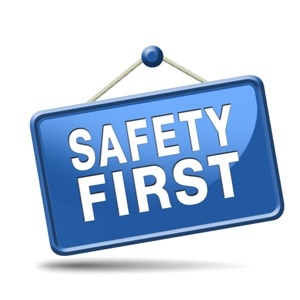 Contractors, how confident are you in your contractor insurance coverage? Did you know that there might be a potentially costly gap in your Commercial General Liability Insurance policy (CGL) that you may not be aware of?
Contractors, how confident are you in your contractor insurance coverage? Did you know that there might be a potentially costly gap in your Commercial General Liability Insurance policy (CGL) that you may not be aware of?
CGL is a standard insurance policy that protects you against liability claims for bodily injury and property damage related to your business activities.
It helps cover legal costs such as court costs, attorney fees, and police report costs in the event of a lawsuit filed by an employee, contractor, client, vendor, etc. and judgments or settlements that result in the lawsuit.
Many banks and clients require this coverage, which makes CGL one of a contractor’s best friends.
Errors in Judgment are Usually NOT Covered by CGL Insurance
But with progressively more complicated projects and blurred lines between professional services and construction duties and responsibilities, financial loss due to errors in judgment are increasing and are usually not covered by CGL. There is also an exclusion in most CGL policies - the “absolute pollution exclusion” - that can leave a gap in your coverage and expose your business to risk.
Pollution & Professional Insurance (CPPI) – 4 Key Coverages
Contractors pollution and professional insurance (Aka contractors protective professional indemnity coverage or CPPI) addresses most of the pollution and professional liability coverage gaps in a CGL with four key coverages.
#1) Professional liability coverage
On a traditional project, an architect or engineer provides the design services, and a contractor implements the design. However, as projects continue to increase in complexity, the line of responsibility between the design firm and contractor are becoming blurred, and contractors are taking on nontraditional risks that a CGL policy may not cover.
Professional liability coverage extends beyond the traditional understanding of “professional services” to include engineering work, design work, construction management operations, and construction process services such as shoring and dewatering.
#2) Protective liability coverage
This extends coverage when you are held responsible for the actions or omissions of another person. Protective liability coverage provides excess coverage over the contracted design professional’s policy if its policy limits are insufficient, protects you if the design professional’s coverage is no longer available, and acts as a difference-in-condition coverage if the CPPI is broader than the underlying professional policy.
#3) Mitigation expense
It’s usually less expensive to fix a problem discovered during construction right away rather than wait until after the project is completed. This coverage – also called “mistake coverage” - allows you to fix a problem before it becomes a claim.
#4) Pollution liability
With the increased focus on the environment and a growing list of pollution sources, contractors are more exposed to pollution and environmental losses than ever. Even if you aren’t engaged in pollution remediation, you probably work with and dispose of fuels, solvents, and other chemical wastes.
Most CGL policies offer limited coverage for bodily injury and property damage caused by pollutants, but the absolute pollution exclusion (and similar exclusions) included in most CGLs and auto policies leave contractors open to liability for damages such as the incidental transportation of waste or the development of contaminated sites. CPPI covers claims such as damage to soil, water, air, animal life, and plant life caused by a pollutant release; the cost to clean up, treat and restore damaged resources as a result of a pollutant release; and pollution losses related to the transportation of a pollutant.
If You’re a Contractor You Likely Need CPPI Protection!
A broader understanding of what “professional services” are and the various exclusions in most CGL policies mean that almost every contractor should have CPPI coverage, so if you're a contractor, don't take chances!
Contact Us for the Right Contractor Insurance Protection
 Call our experienced independent agents at American Insuring Group at (800) 947-1270 or (610) 775-3848 or click here to connect with them online to learn if there are any potentially costly gaps in your CGL policy.
Call our experienced independent agents at American Insuring Group at (800) 947-1270 or (610) 775-3848 or click here to connect with them online to learn if there are any potentially costly gaps in your CGL policy.
You can rest assured that they’ll find you the right coverage at a great price!



 Driving a truck is challenging enough. Add some snow, sleet or freezing rain, and you have the perfect storm not only for your safety, but for your
Driving a truck is challenging enough. Add some snow, sleet or freezing rain, and you have the perfect storm not only for your safety, but for your  Every industry comes with its own unique set of issues and concerns when it comes to insurance; the food industry is no exception. And of course, each individual restaurant is unique.
Every industry comes with its own unique set of issues and concerns when it comes to insurance; the food industry is no exception. And of course, each individual restaurant is unique.  Independent insurance agencies like American Insuring Group represent many different insurance companies (in our case, lots and lots of companies!), so we can find you the best rate for any type of restaurant insurance you need.
Independent insurance agencies like American Insuring Group represent many different insurance companies (in our case, lots and lots of companies!), so we can find you the best rate for any type of restaurant insurance you need.  Workers compensation fraud is one of the fastest growing areas of insurance fraud and accounts for approximately
Workers compensation fraud is one of the fastest growing areas of insurance fraud and accounts for approximately  To learn more about reducing your workers compensation premiums,
To learn more about reducing your workers compensation premiums,  American Insuring Group has teamed up with Progressive Insurance to help commercial trucking companies comply with the new Electronic Logging Device (ELD) mandate.
American Insuring Group has teamed up with Progressive Insurance to help commercial trucking companies comply with the new Electronic Logging Device (ELD) mandate. In 2015,
In 2015,  If you have a dream of owning a restaurant, bar or nightclub, restaurant insurance is probably one of the last things you want to think about. It isn’t as exciting as creating a menu or choosing the right linens, but
If you have a dream of owning a restaurant, bar or nightclub, restaurant insurance is probably one of the last things you want to think about. It isn’t as exciting as creating a menu or choosing the right linens, but  Most businesses outsource part (or sometimes all) of their workers compensation functions to improve their injured workers’ experiences and case outcomes. Some functions that are commonly outsourced include administrators, medical providers, pharmacy benefit managers, and medical bill review.
Most businesses outsource part (or sometimes all) of their workers compensation functions to improve their injured workers’ experiences and case outcomes. Some functions that are commonly outsourced include administrators, medical providers, pharmacy benefit managers, and medical bill review. Nearly
Nearly  As the owner of a restaurant, you have a lot of responsibilities – managing employees, advertising, pricing, and the list goes on.
As the owner of a restaurant, you have a lot of responsibilities – managing employees, advertising, pricing, and the list goes on.



